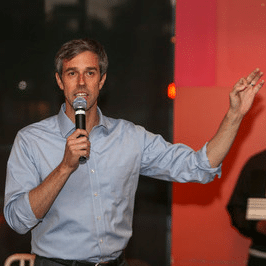Why I’m Betting on Millennials This Election Day
COMMENTARY

Millennials (and their younger siblings from Generation Z) are the largest, most diverse and progressive group of potential voters in American history, comprising fully 30 percent of the voting-age population.
On Nov. 6, they’ll have the power to alter the course of American politics — flipping Congress, changing the leadership of states and cities, making lawmakers act and look more like the people who are literally the nation’s future.
But will they vote?
In the last midterm election, in 2014, only 16 percent of eligible voters between the ages of 18 and 29 bothered.
In midterms over the last two decades, turnout by young people has averaged about 38 points below the turnout rate of people 60 and older. That has given older voters a huge say over where the nation is likely to be by the time those younger people reach middle age and the older voters have passed on.
I’m not criticizing younger non-voters. They have a lot on their minds — starting jobs, careers, families. Voting isn’t likely to be high on their list of priorities.
Also, unlike their grandparents — baby boomers who were involved in civil rights, voting rights, women’s rights, the anti-Vietnam War movement — most young people today don’t remember a time when political action changed America for the better.
They’re more likely to remember political failures and scandals — George W. Bush lying about Saddam Hussein’s weapons of mass destruction; Bill Clinton lying about Monica Lewinsky; both parties bailing out Wall Street without so much as a single executive going to jail.
Most don’t even recall when American democracy worked well. They don’t recall the Cold War, when democracy as an ideal worth fighting for. The Berlin Wall came down before they were born.
Instead, during their lives they’ve watched big money take over Washington and state legislatures — which may explain why only about 30 percent of Americans born in the 1980s think it “essential” to live in a democracy.
Many young people have wondered if their votes count anyway, because so many of them live in congressional districts and states that are predictably red or blue.
Given all this, is there any reason to hope that this huge, diverse, progressive cohort of Americans will vote in the upcoming midterms?
My answer is, yes.
First, the issues up for grabs aren’t ideological abstractions for them. They’re causes in which millennials have direct personal stakes.
Take, for example, gun violence — which some of these young people have experienced firsthand and have taken active roles trying to stop.
Or immigrants’ rights. Over 20 percent of millennials are Latino, and a growing percent are from families that emigrated from Asia. Many have directly experienced the consequences of Donald Trump’s policies.
A woman’s right to choose whether to have a baby, and gays’ or lesbians’ rights to choose marriage — issues to which millennials are also deeply committed — will be front and center if the Supreme Court puts them back into the hands of Congress and state legislatures.
Millennials are also concerned about student debt, access to college, and opportunities to get ahead unimpeded by racial bigotry or sexual harassment. And they’re worried about the environment. They know climate change will hit them hardest since they’ll be on the planet longer than older voters.
They’ve also learned that their votes count. They saw Hillary Clinton lose by a relative handful of votes in places such as Michigan, Wisconsin and Pennsylvania.
They’ve been witnessing razor-thin special elections, such as Conor Lamb’s win by a few hundred votes in the heart of Pennsylvania Trump country, and Hiral Tipirneni’s single-digit loss in an Arizona district that Trump won by 21 percentage points in 2016.
They know the importance of taking back governorships in what are expected to be nail-bitingly close races — in states like Wisconsin, Minnesota and Kansas. They’re aware of the slim but increasingly real possibility of taking back the Senate. (Who knew Ted Cruz would be so vulnerable? Who even knew the name Beto O’Rourke?)
As doubtful as these young people are about politics and the differences between the two parties, they also know that Trump and his Republican enablers want to take the nation backwards to an old, white, privileged, isolated America. Most of these younger people don’t.
In my 35 years of teaching college students, I’ve not encountered a generation as dedicated to making the nation better as this one.
So I am betting on them this Nov. 6.
—
Robert Reich’s latest book is “The Common Good,” and his newest documentary is “Saving Capitalism.”
—
© 2018 By Robert Reich; Distributed by Tribune Content Agency, LLC






















